Starting over is never easy. It’s about looking at what has already happened, acknowledging what went wrong, and still choosing to move forward.
But, over time, I realized that starting over is not a sign of weakness, but of courage.
It happens when life forces you to be honest with yourself, to stop insisting on paths that no longer make sense, and to face the truth that success sometimes hides: nobody grows without starting over.
When I left Brazil and decided to start all over again in Ireland, I didn’t imagine how much this move would transform me.
I had a stable career, a defined path, a professional identity.
And suddenly, I had to abandon all that to be a waiter in a country where I could barely express myself. It was a shock of reality and humility.
But it was there, in the discomfort, that I began to understand the true value of starting over.
It forces you to shed who you were, to make room for who you can become.
Starting over is, above all, an exercise in honesty.
It’s admitting that the previous phase served its purpose.
That it’s no longer about proving something, but about reconnecting with what makes sense.
With each new beginning—whether in personal life, business, or projects—there’s a dose of uncertainty, but also a new clarity: that we don’t need to be who we were yesterday to keep moving forward tomorrow.
At SEDA, I experienced countless restarts. Changes in strategy, model, and culture.
And in each one, I learned that restarting doesn’t happen when everything goes wrong, but when we have the courage to do things differently before it’s too late.
Starting over is an act of leadership because it demands detachment, vision, and, above all, because it inspires others to also believe that it’s possible to reinvent themselves.
Today, I see starting over as the most honest point in any journey because it’s when we shed our masks, titles, and expectations.
It’s the moment when we return to the essentials, to the purpose that drives us.
Starting over is accepting life’s invitation to begin better, not bigger.
And perhaps that is the greatest wisdom of all: understanding that, no matter how far we go, there will always be a new beginning waiting for those who have the courage to rewrite their own story.
